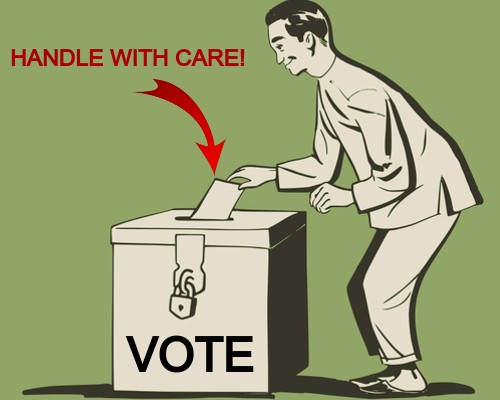You probably use a computer — in fact, you’re probably reading this column on a computer.
For 72% of you, that computer is the ubiquitous “standard” Windows PC or laptop. For 20% of you, it’s a Mac. The other 8% of you oddballs mostly use Linux or (Linux-based) ChromeOS.
I know the 92% of you who use Windows or macOS get tired of the cool kids telling you this, but it should be the other way around. Almost everyone should be using Linux almost all the time.
Instead of leading off with the technical reasons why, though, I want to hit you with the political, and personal financial, reasons for making the switch.
I’m going to start from the assumption that, like most people most of the time, you’ve had your “daily driver” computer — the one you use at home to browse the web, check email, stream YouTube videos, and maybe take a Zoom meeting every now and then — for at least a couple of years and you’re starting to feel like it’s a little slow and you might need a new one (if you just unboxed that brand new PC and got it set up, feel free to bookmark this article and come back to it in two years).
You may have noticed that new computers are suddenly getting expensive every day. Not just top-of-the-line machines, either. I bought the “cheap” Raspberry Pi 5 kit I’m writing this column on less than a month ago. I paid $229 for it. As of this morning, the going price is $299.
There are “market” reasons for this sudden price rise trend — cryptocurrency miners have been buying up graphics cards as fast as they can be made for years, and now artificial intelligence companies are doing the same thing with RAM and storage devices.
There are also political reasons. The US regime’s desire to engage in “trade wars” with China and other countries has mucked up the supply chain connecting US consumers to cheap electronics., including computers and computer chips. It’s getting harder to get that stuff, and Donald Trump’s bizarre tariff fetish hits American consumers right in their wallets.
Which is where Linux comes in.
You probably DON’T need a new computer. Your current machine will almost certainly run faster and perform better, while doing all the things you normally do, if you’re willing to spend $0.00 and half an hour switching from Windows to Linux (or, if you have one of the old Intel-based Macs, from macOS to Linux).
Yes, $0.00. Not the $139 Microsoft wants for a Windows 11 license. Most versions (“distributions”) of Linux cost $0.00, and I don’t mean “preview” or “lite” versions.
Yes, half an hour, tops.
The dirty little secret Microsoft doesn’t want you to know: For years now, Linux has been easier to install, easier to set up, at least as easy to use, and MUCH easier to deal with updates on, than Windows.
You don’t have to buy Apple’s over-priced hardware to get the “look and feel” you associate with macOS, either. A number of Linux distributions copy that “look and feel.”
Here are two sites where you can answer a few questions and get recommendations for which flavor of Linux best fits your current machine and your personal preferences:
https://distrochooser.de/
https://www.distrowiz.com/
If you’re a normal computer user doing normal things — pretty much everyone except uber-gamers and tech people who require bespoke software — you can stick it to the cronies whose bottom lines the US regime is “protecting” with its tariff and trade war nonsense, and avoid the market bottleneck pricing on GPUs, CPUs, RAM, and storage.
Linux is good politics AND a wise financial decision.
Thomas L. Knapp (X: @thomaslknapp | Bluesky: @knappster.bsky.social | Mastodon: @knappster) is director and senior news analyst at the William Lloyd Garrison Center for Libertarian Advocacy Journalism (thegarrisoncenter.org). He lives and works in north central Florida.
PUBLICATION/CITATION HISTORY



